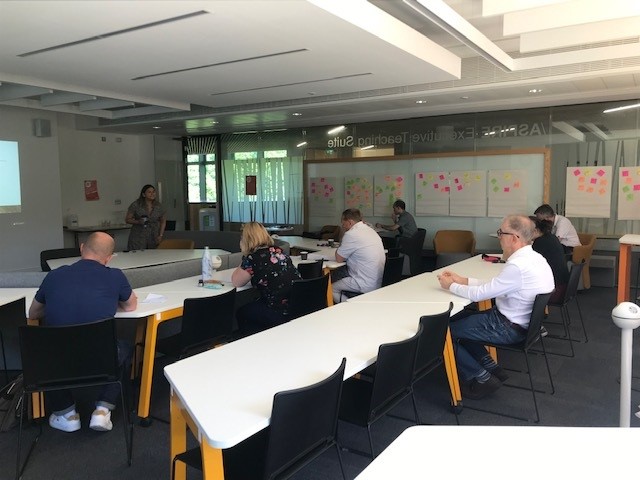Last month, Dr Lina Simeonova and Professor Thanos Papadopoulos from Kent Business School led a Net Zero Pathway to Change workshop to provide businesses with the tools and techniques required to drive a strong change management culture capable of leading -and keeping- their organisation on the path to net zero.
Expert in Operations Management, Dr Lina Simeonova, compares introducing a net zero initiative to buying a hybrid car. The latter may come across an environmentally friendly option but the impact of this can depend on various factors such as how and when the car is used, the terrain it’s driven on and where it’s being driven. In many cases, the driver will need to change their behaviour to make buying a hybrid car worthwhile, and this change will need to be monitored over time to ensure that the car is achieving the environmental benefits it promises.
Similarly businesses must use strategic, data-driven approaches to continuously monitor the impact of the environmental initiatives they put in place. As Lina explains, “In the workshop we introduced a range of tools which businesses can use to uncover barriers for their transition to Net Zero and maximise the value delivered to customers. We discussed how to translate an all-encompassing concept such as Net Zero into more manageable parts and broken down to smaller meaningful projects with specific goals and shorter timescales.”
Here are three tools which our experts recommended:
The DMAIC (Define, Measure, Analyze, Improve, Control) Cycle

DMAIC is a data-driven improvement cycle used for improving, optimizing and stabilizing business processes and designs with 5 steps: Define, Measure, Analyze, Improve and Control. For this approach to work, your project needs to:
- be an obvious problem with an existing process
- make a difference without being too complex
- result in a measurable change with data available for you to collect
Balance Score Card

The Balance Score card is a simple question-based tool used to measure strategic communication and performance by tying performance measures to corporate strategy. It identifies the factors that create long-term economic value in an organisation including customer focus, business processes, organisational learning and growth and financial factors, and helps organisations to set targets and align strategic initiatives across these areas. Whilst readily adaptable to non-profit and Government organisations as well as businesses, it requires a large amount of quantitative detail and a substantial amount of time and money to set up.
Life Cycle Analysis

Life Cycle Analysis (or assessment) ) is standardized method to evaluate environmental consequences of a product or activity across its entire life which includes examining human impacts, energy, materials and waste at each stage of a product’s life cycle from cradle to grave. The assessment is dependent on the business having access to good quality data which makes assessing indirect ‘scope 3’ emissions -where the majority of an organisation’s greenhouse gas emissions and cost reduction opportunities lie- particularly challenging.
Professor Thanos Papadopoulos, Professor of Management and Director of the Technology, Innovation Management, and Enterprise (TIME) Research Centre at Kent Business School, has been listed among the top 2% of researchers in the world by Stanford University. His research focuses on the application of Information Systems and Digital/Emerging Technologies on supply chain management; supply chain design issues and disruptions/relief operations; and resilience and sustainability in various contexts.
Dr Lina Simeonova is a Lecturer in Operations Management at Kent Business School who has worked as a Project Manager and Researcher on a Knowledge Transfer Partnership, where she worked towards bridging the gap between industry and academia by successfully implementing Operational Research techniques in real settings. research is mainly in the area of Management Science and Operations Research, with a focus on routing and scheduling, and exploring the benefits of integrated operations in logistics and supply chain.
This Net Zero Pathway to Change workshop is part of a wider programme, funded by the UK Community Renewal Fund and led by Kent Invicta Chamber of Commerce, Kent County Council and the University of Kent, to support SMEs within the Local Authority areas of Swale, Gravesham and Canterbury to identify, adapt and implement measures that reduce their carbon emissions. As such, businesses from these areas who attend the workshops are able -and encouraged- to apply for £5k funding to continue to access support from University of Kent academics to take further steps towards meeting their net zero goals.

